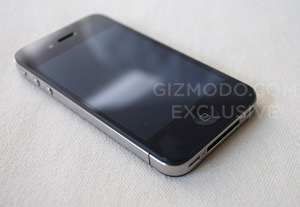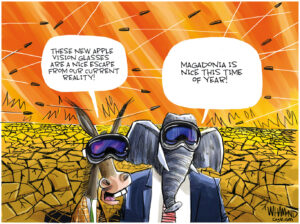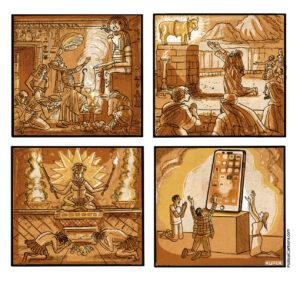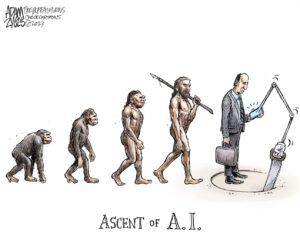What Apple’s Lost iPhone Says About Access Journalism
It goes like this: A 27-year-old Apple employee left what appears to be the next iPhone on a bar stool. Someone picked up the super-secret device and, long story short, sold it to a gadget blog. And thus a corporation’s highly sophisticated control over the journalists who cover it briefly and symbolically imploded. (continued)
It goes like this: A 27-year-old Apple employee left what appears to be the next iPhone on a bar stool. Someone picked up the super-secret device and, long story short, sold it to a gadget blog. And thus a corporation’s highly sophisticated control over the journalists who cover it briefly and symbolically imploded.
Over the years Apple has figured out how to generate unrivaled free advertising for its products by juicing anticipation and meticulously managing both its product announcements and media reaction. Secrecy is the key ingredient and Apple has no peer when it comes to keeping secrets.
The company successfully shut down a fan blog that reported on its products prematurely. A Chinese subcontractor famously killed himself after allegedly losing a prototype iPhone. These are the bogyman stories, but the intense pressure Apple applies to the media, although executed brilliantly, is routine and speaks to some of journalism’s worst tendencies.
Gizmodo, the site that bought the lost/stolen (Gizmodo says “lost,” Apple says “stolen”) iPhone, delves into these issues in a just-posted and refreshingly self-critical article:
Once you’ve got the ear of Apple, they’re great. Human, considerate, and helpful. But make a mistake or step on their toes and they shut off your drip. That’s their system—and it works brilliantly. If you want access to Apple, you can’t upset them. And since nothing gets attention like Apple products, it behooves those in the tech enthusiast press to stay in Apple’s good graces.
(It bears mentioning that Apple also will remove advertising from outlets that it is unhappy with, as they did with Gizmodo ever since we reported on Steve Jobs’ health problems. Fortunately in organizations with a clear wall between edit and advertising—not perfect at Gawker, but as good or better as any other outlet I’ve ever worked for—it isn’t a concern for the writing staff.)
Access is a major problem for journalists on all beats, whether sports or business or, most especially, politics. David Sirota recently wrote about this in a must-read column. It’s why the best journalists often can be found on the outside. Because highly secretive gadget companies, politicians, oil companies, mercenaries, ideological media moguls and anyone else worth investigating isn’t going to invite some nosy reporter back to the lodge to ask tough questions.
Gizmodo isn’t heroic for buying a lost iPhone and cashing in on the traffic and ad revenue that comes with it, but they deserve credit for not playing by the rules of the people they’re supposed to be covering.
Gizmodo gave the phone back to Apple, but on one condition: Apple had to claim the device, in writing. (This forced the company to formally confirm the phone’s authenticity — although it may not be the final product, it was made by Apple.)
More on the new iPhone, the poor kid who lost it (and is probably catching hell) and Gizmodo’s thoughts on access. — PZS
Your support matters…Independent journalism is under threat and overshadowed by heavily funded mainstream media.
You can help level the playing field. Become a member.
Your tax-deductible contribution keeps us digging beneath the headlines to give you thought-provoking, investigative reporting and analysis that unearths what's really happening- without compromise.
Give today to support our courageous, independent journalists.






You need to be a supporter to comment.
There are currently no responses to this article.
Be the first to respond.